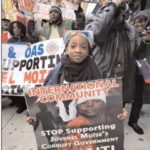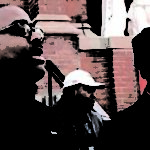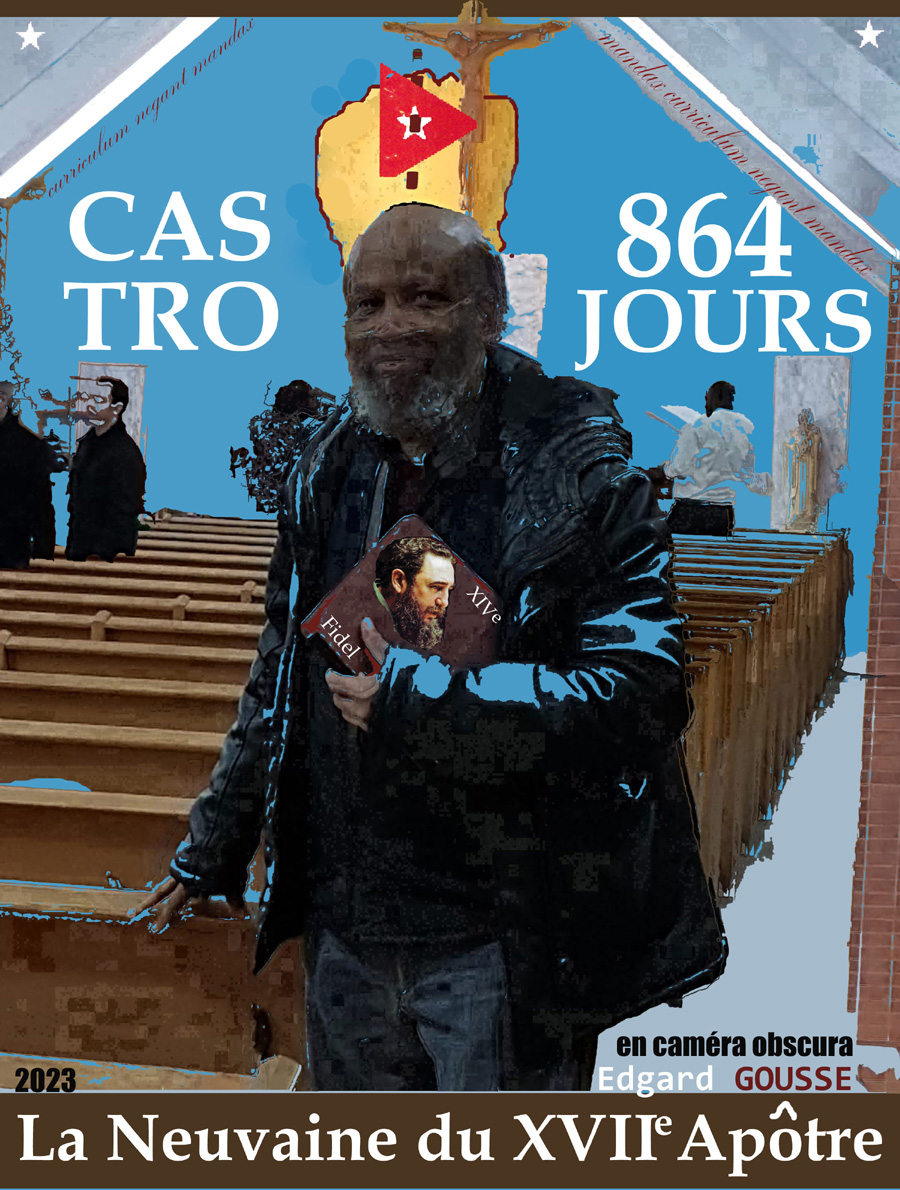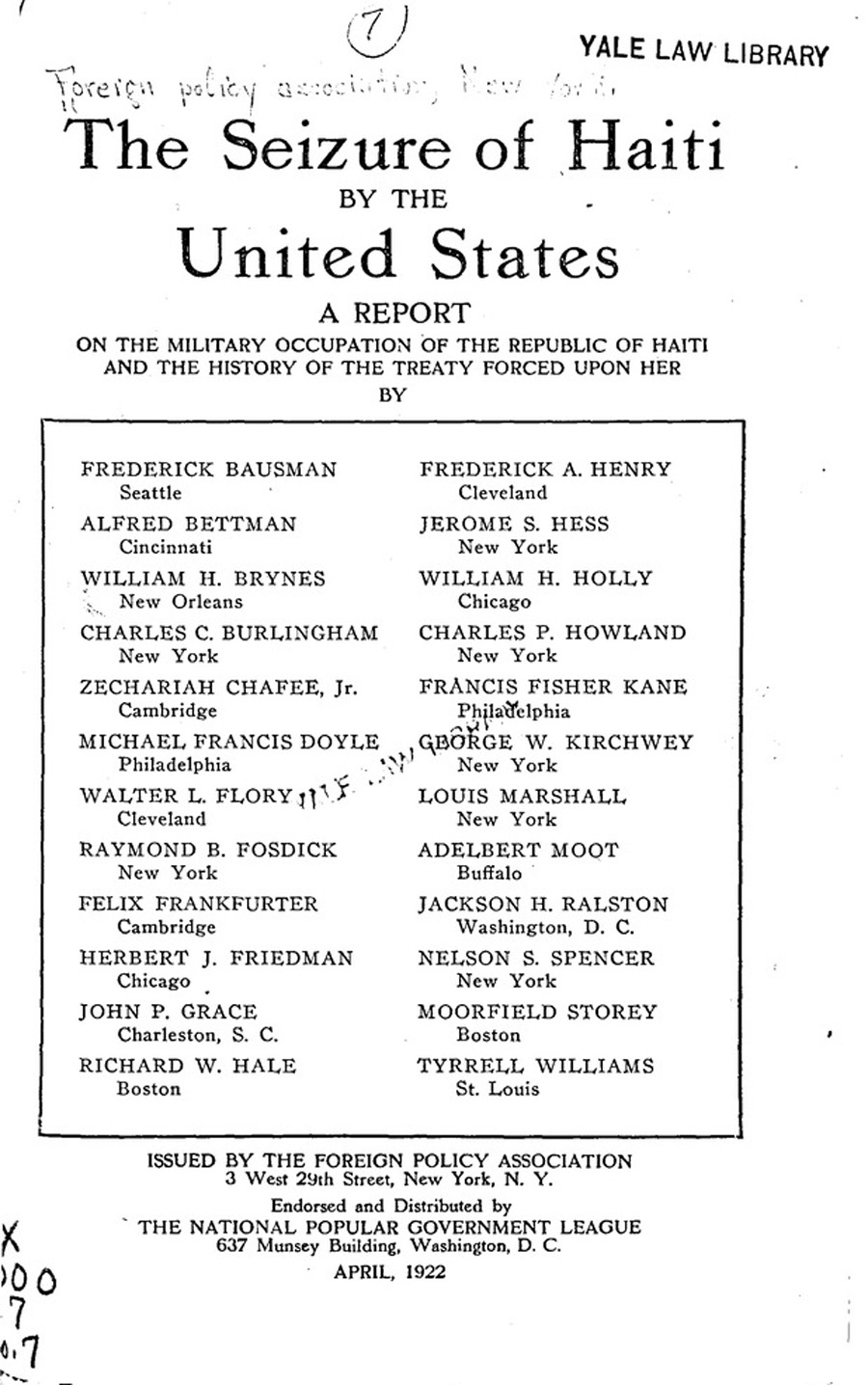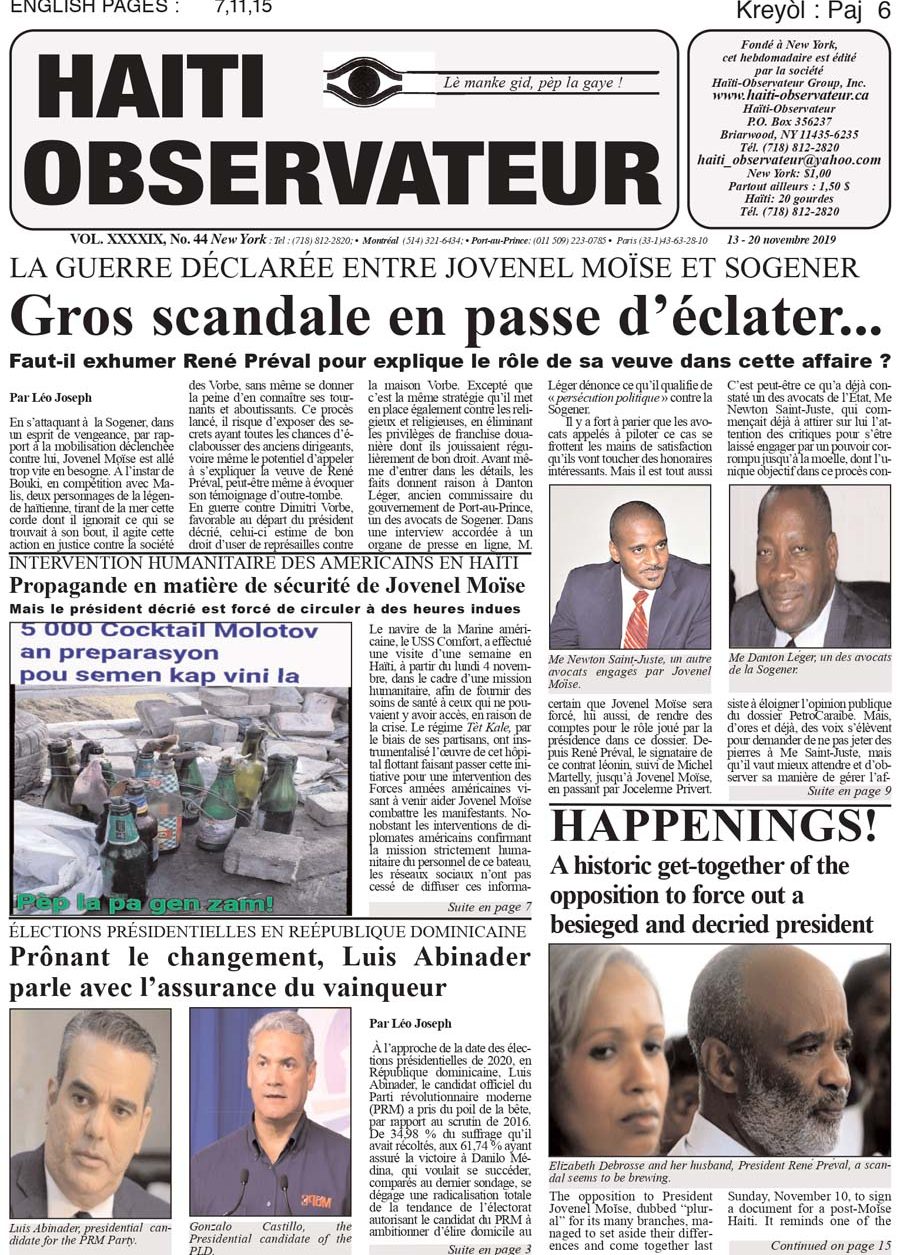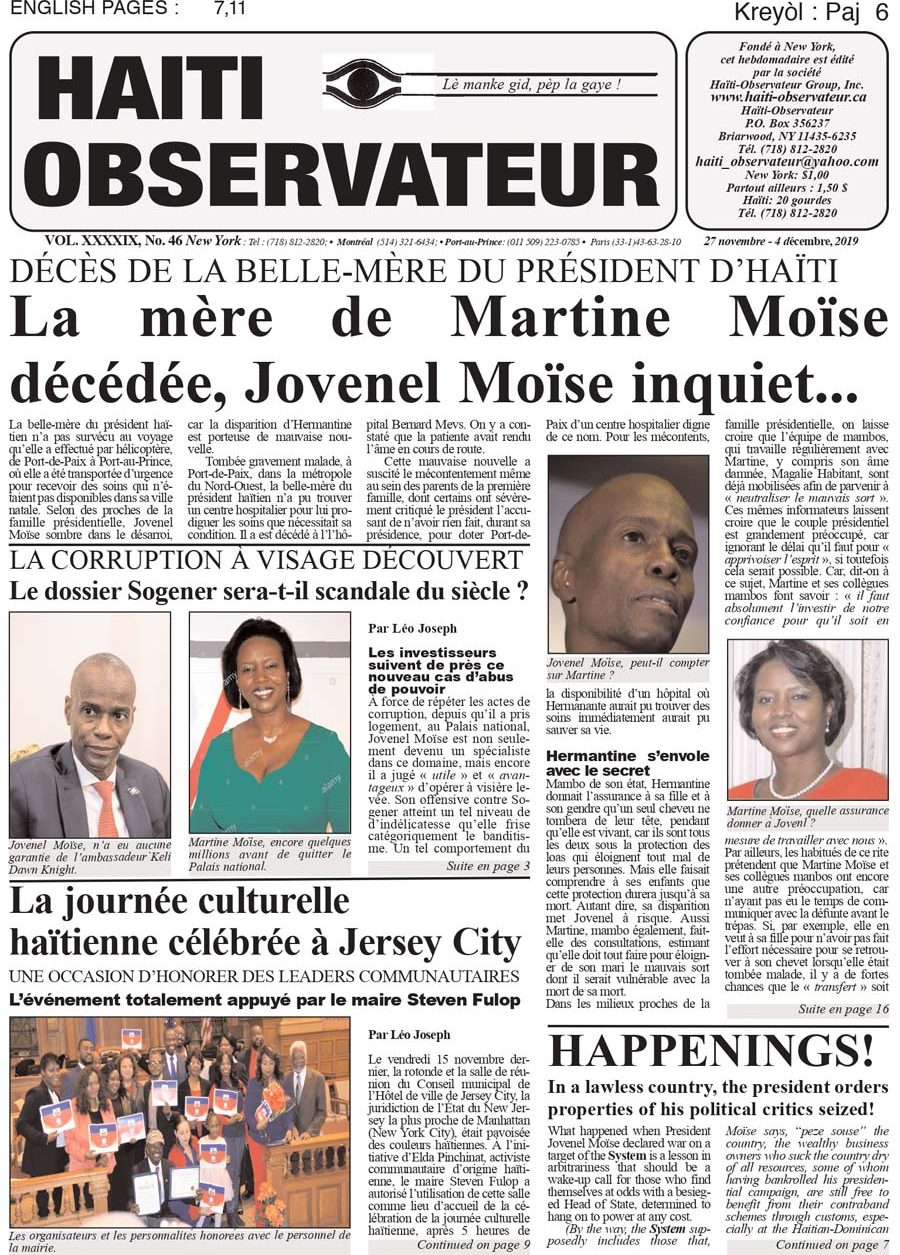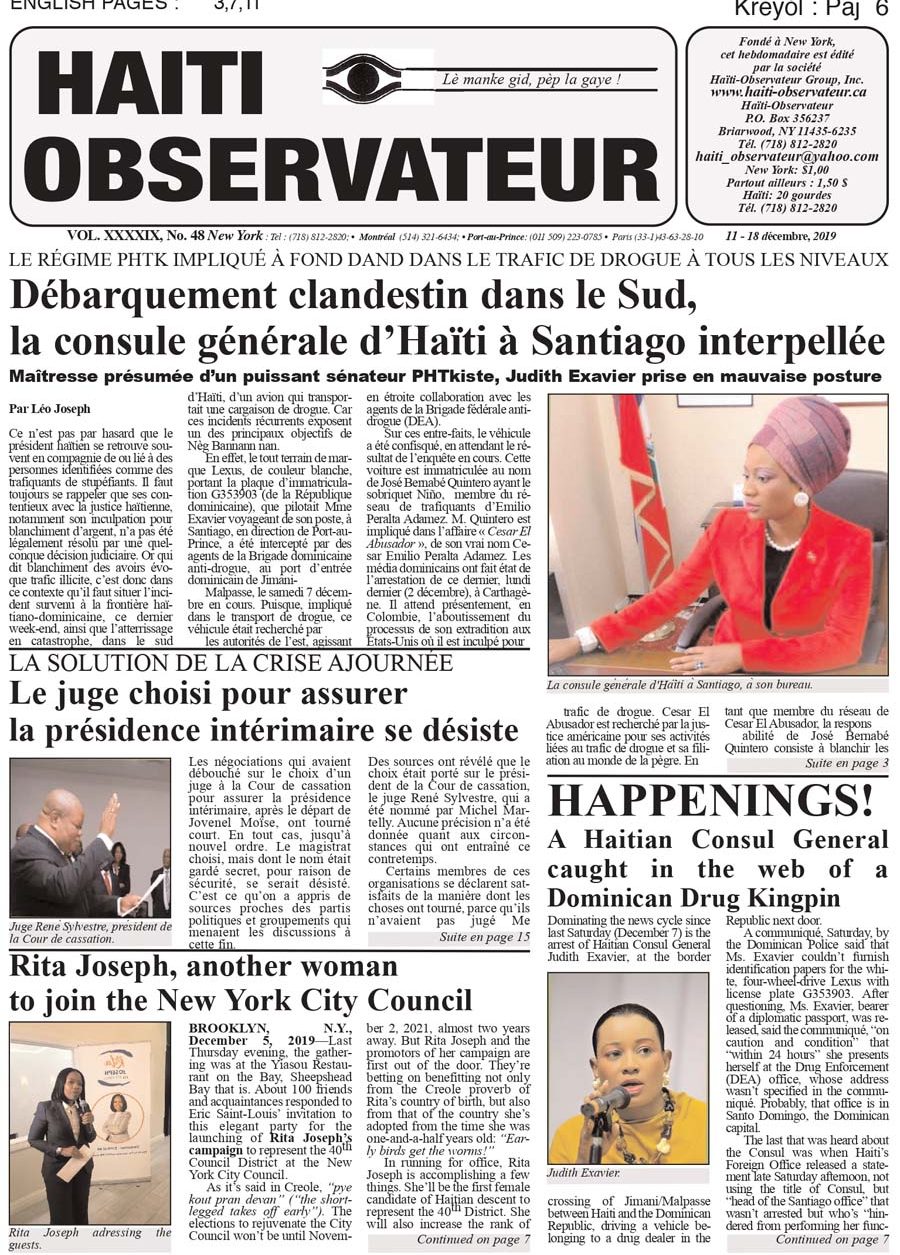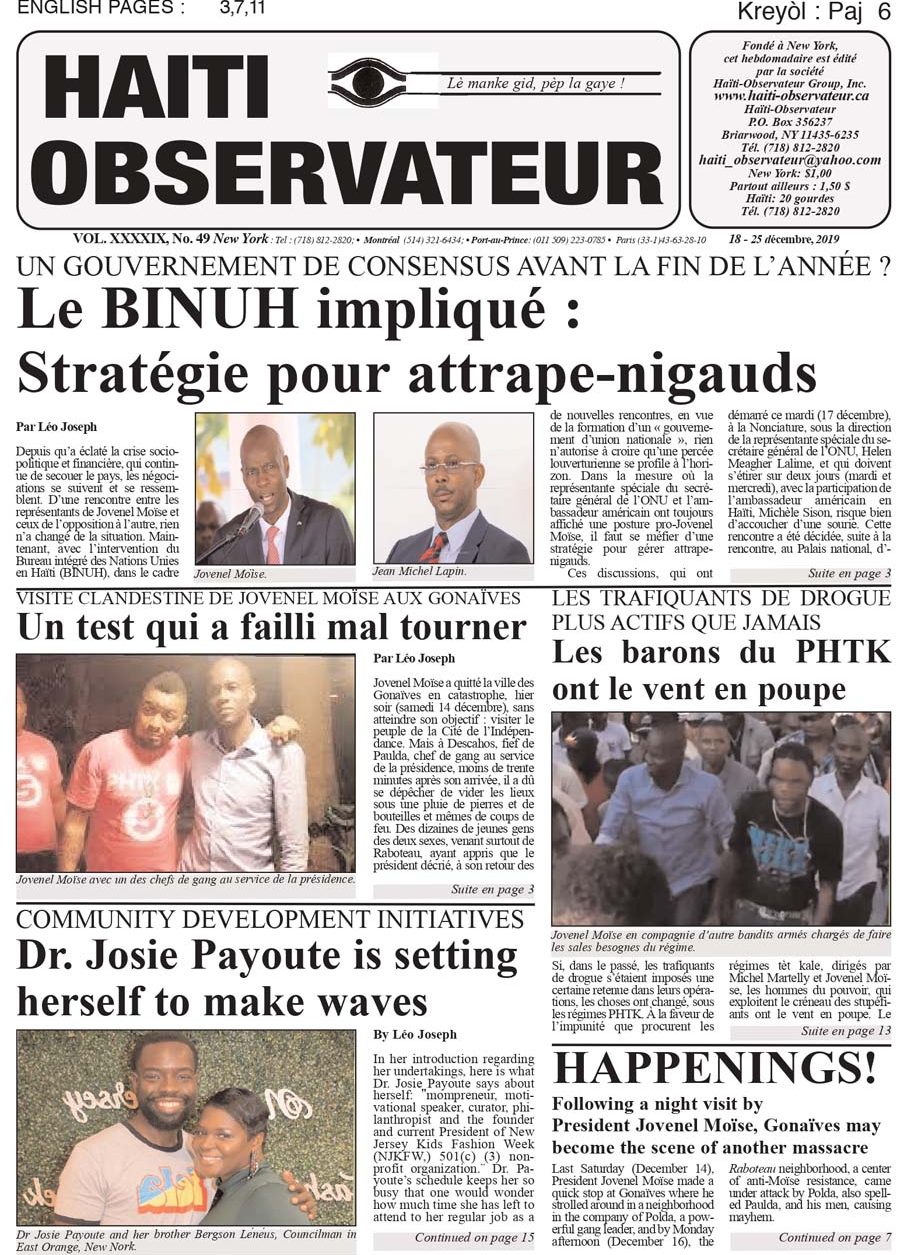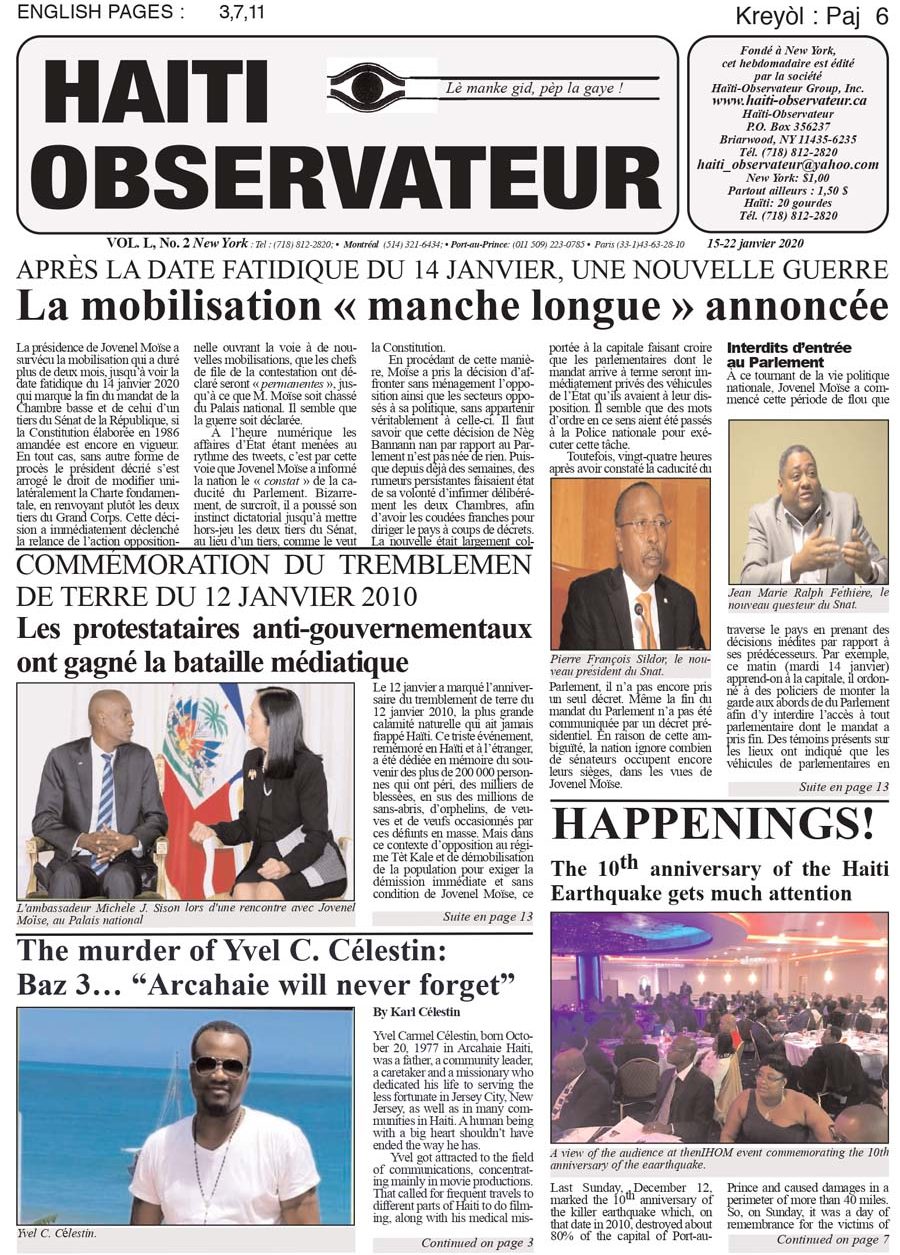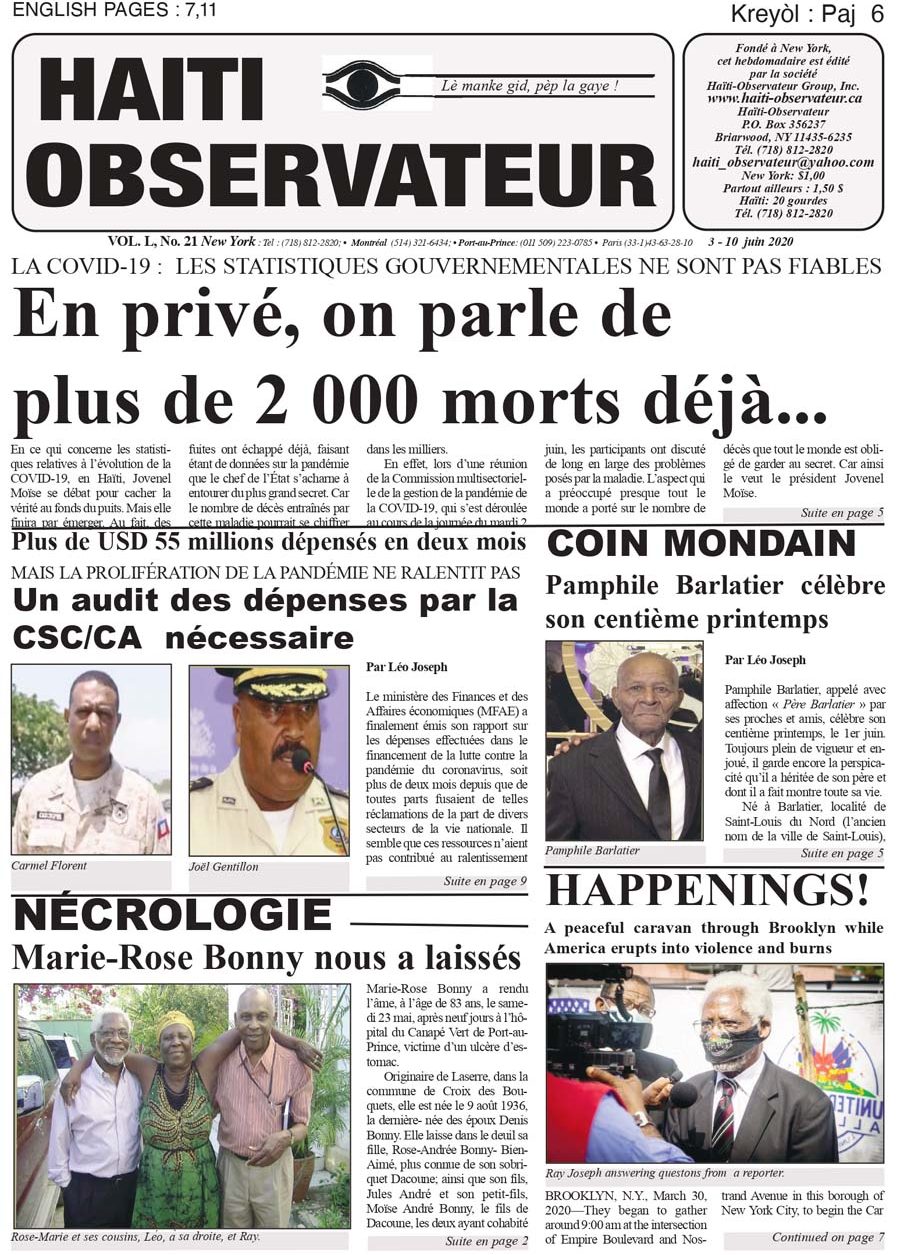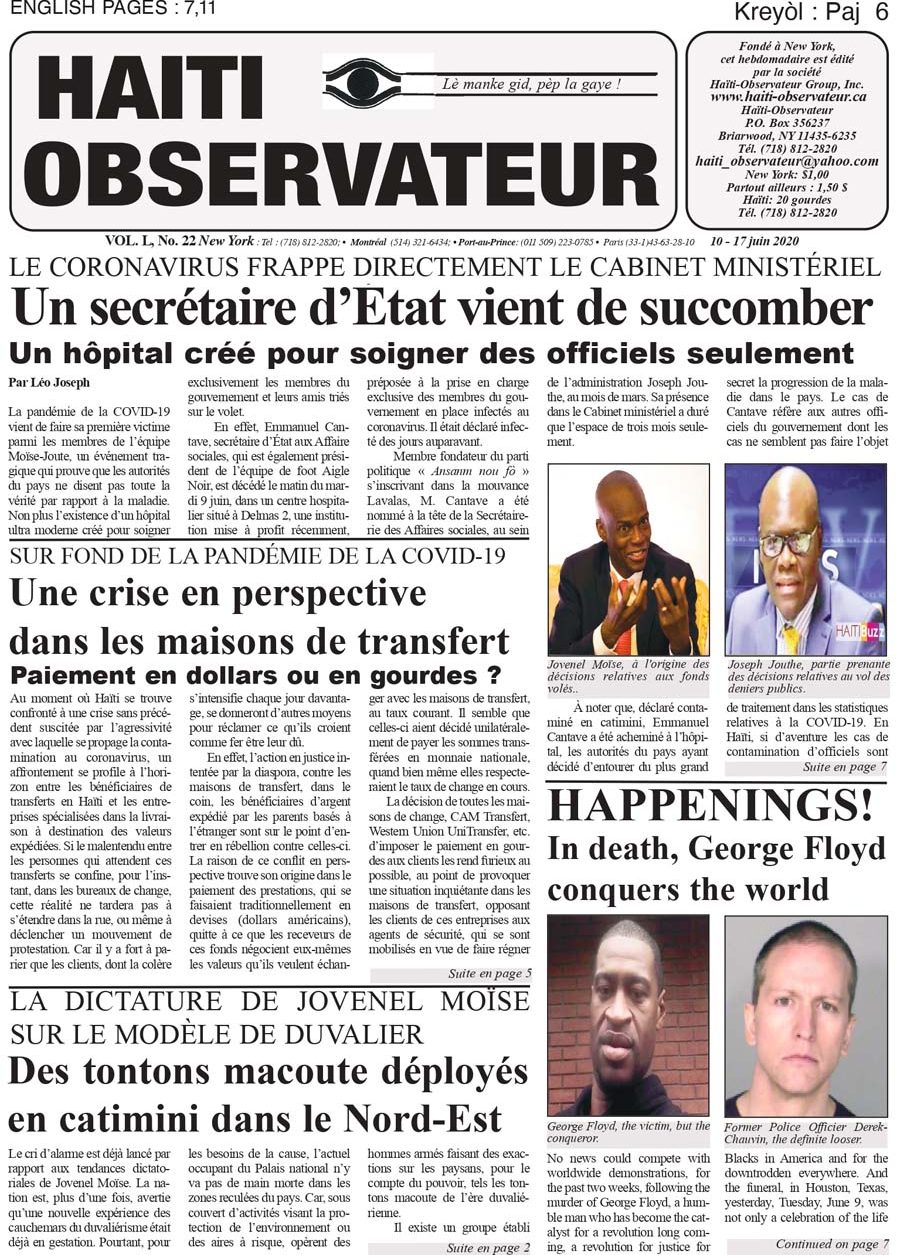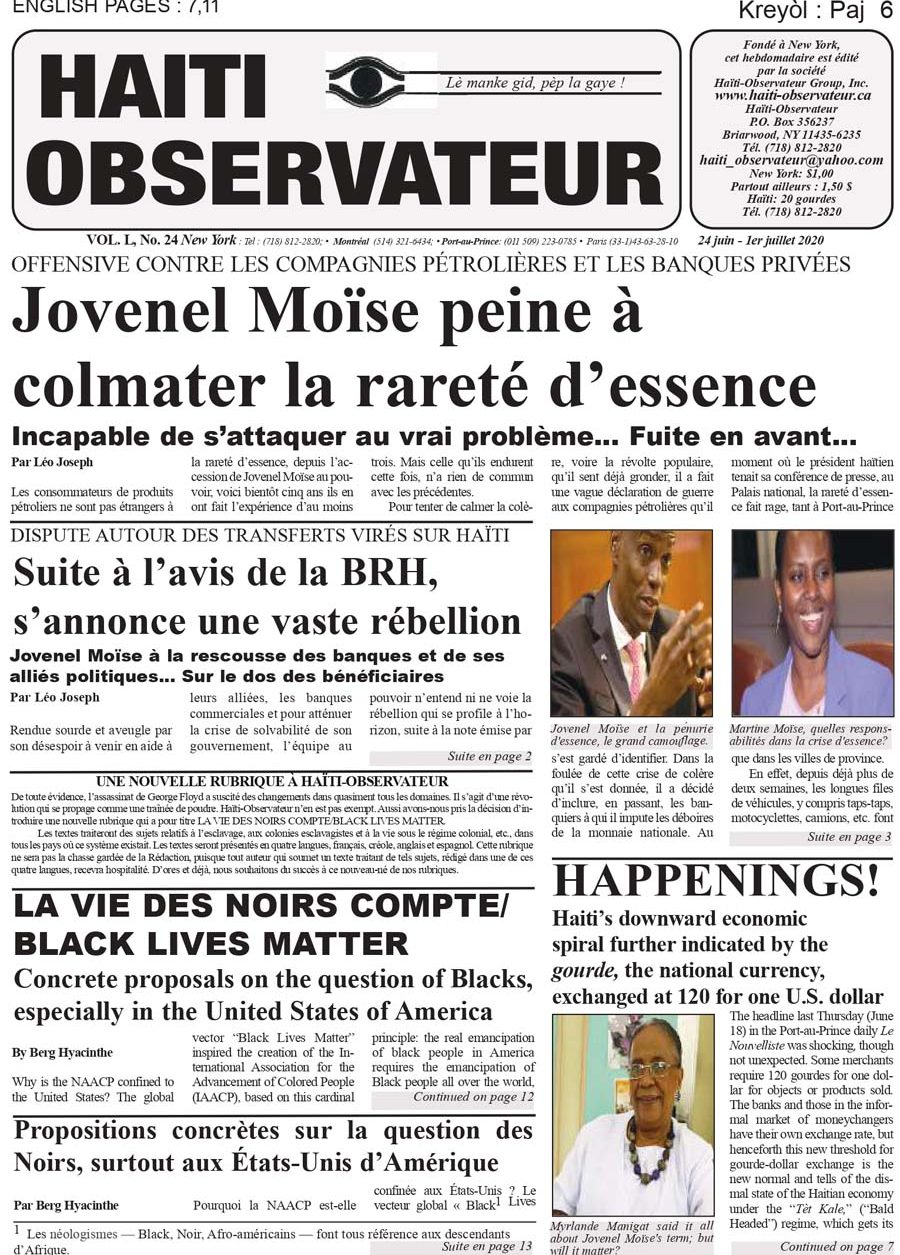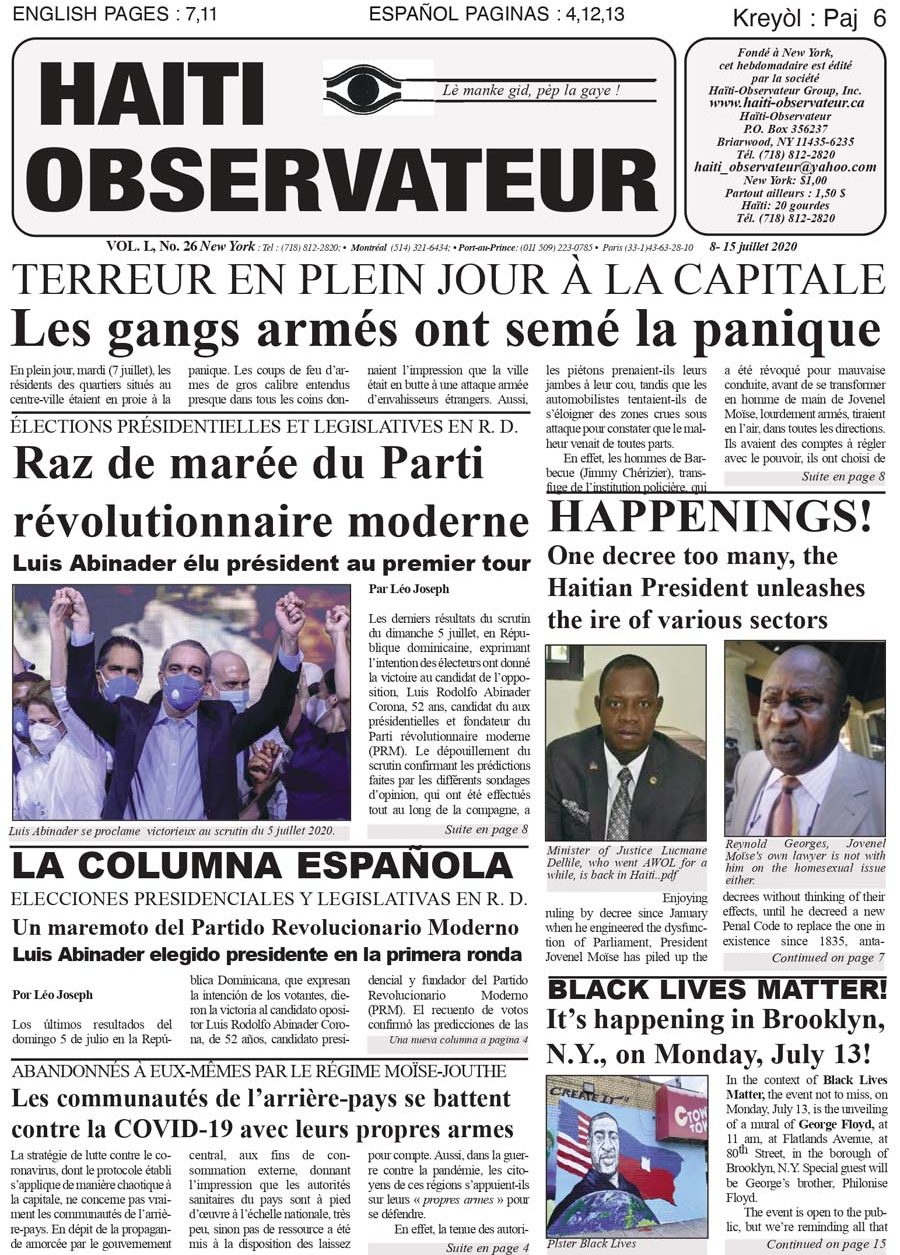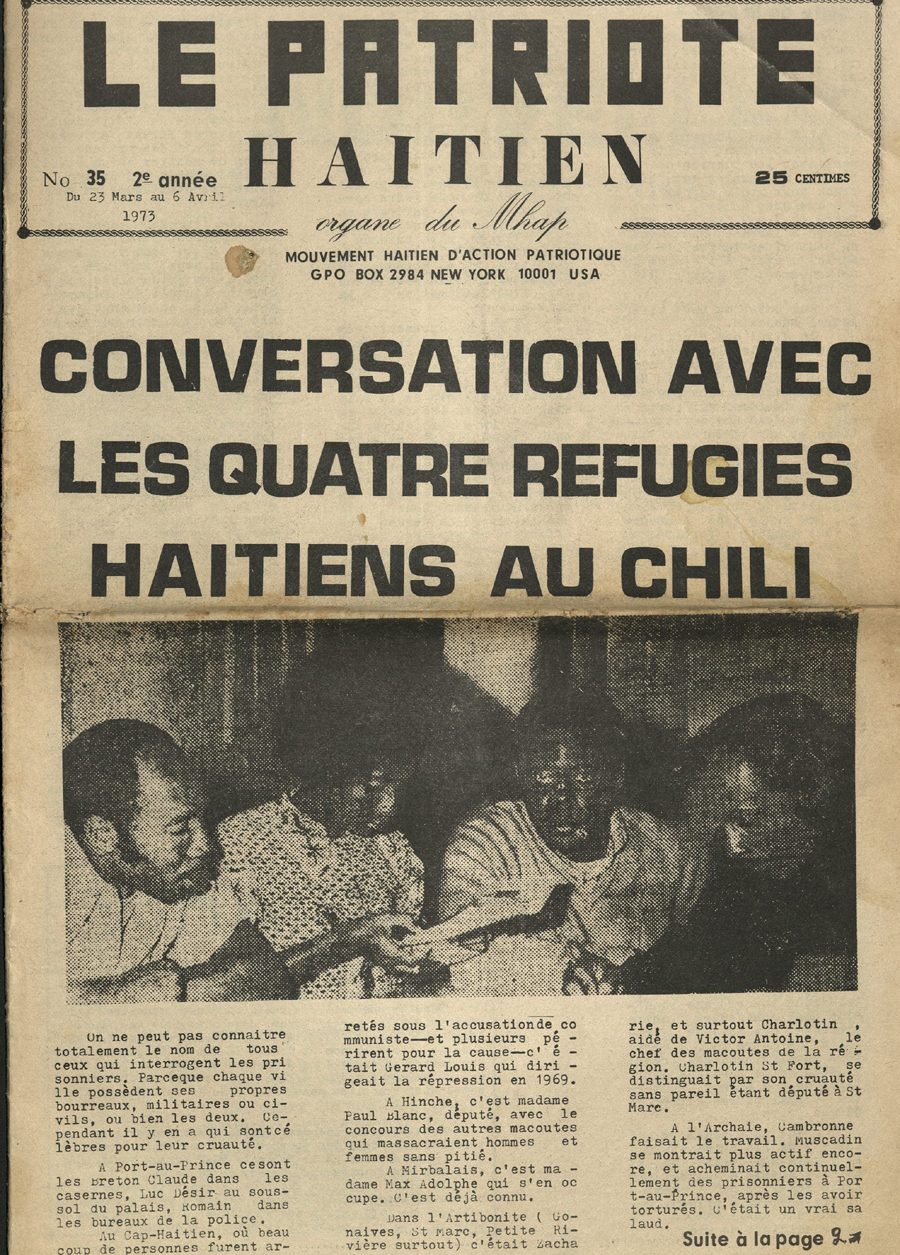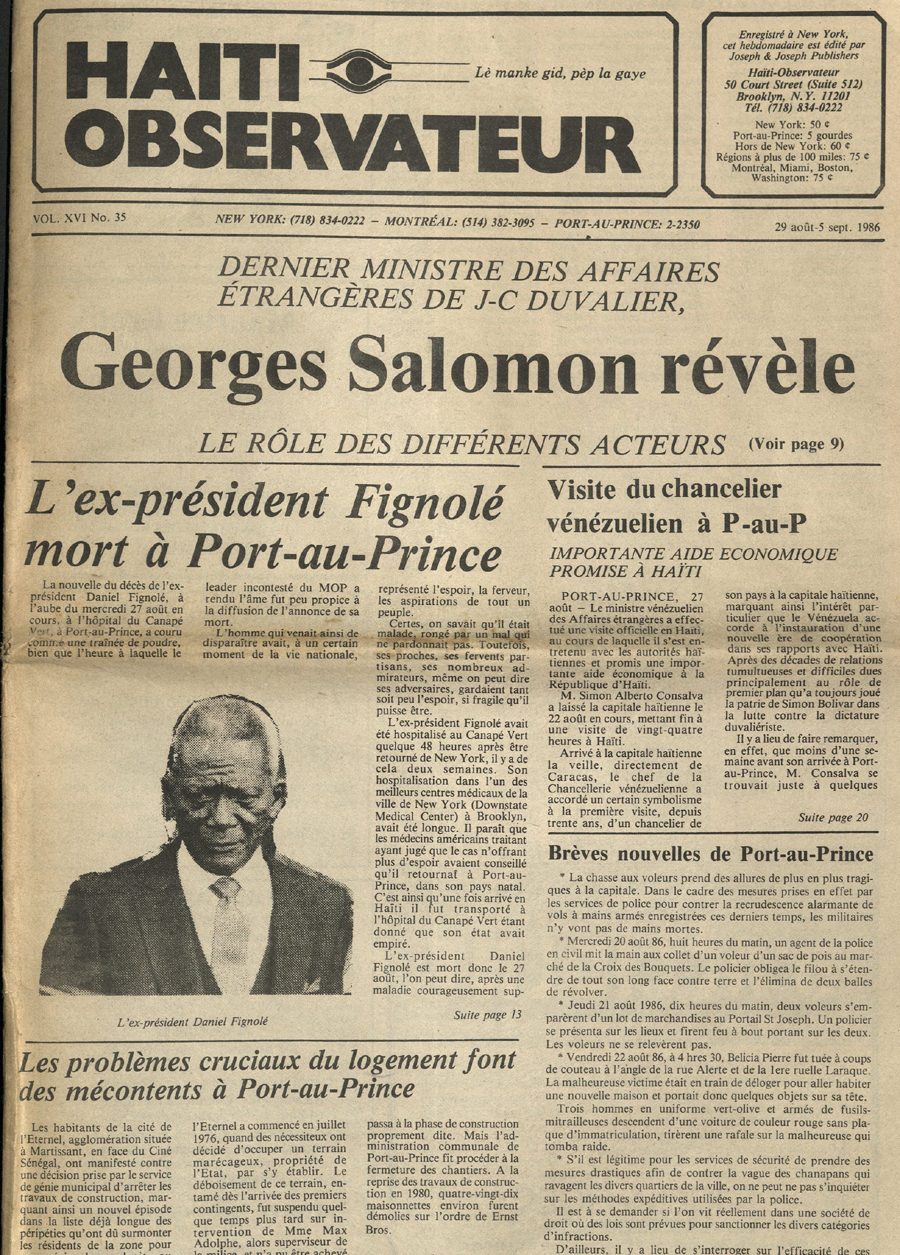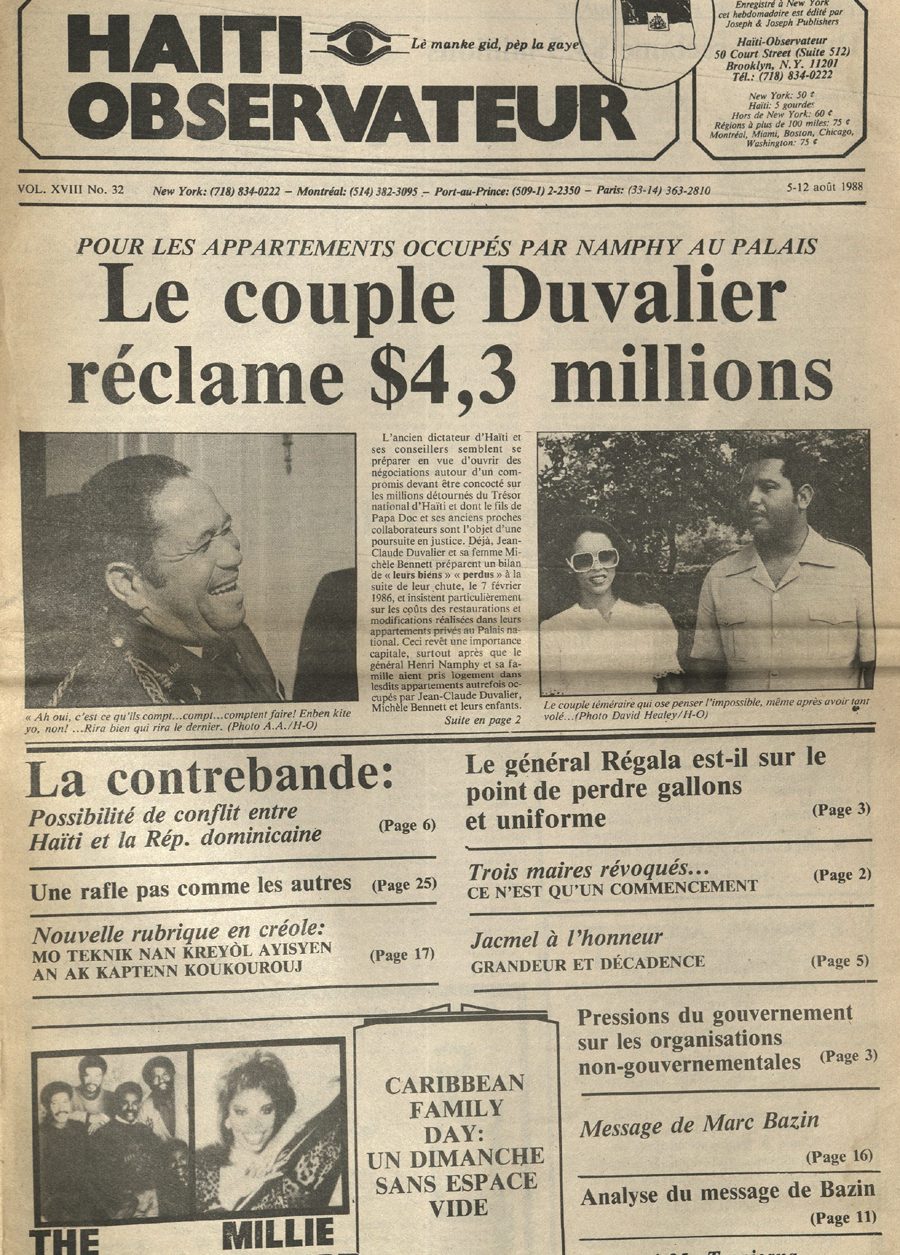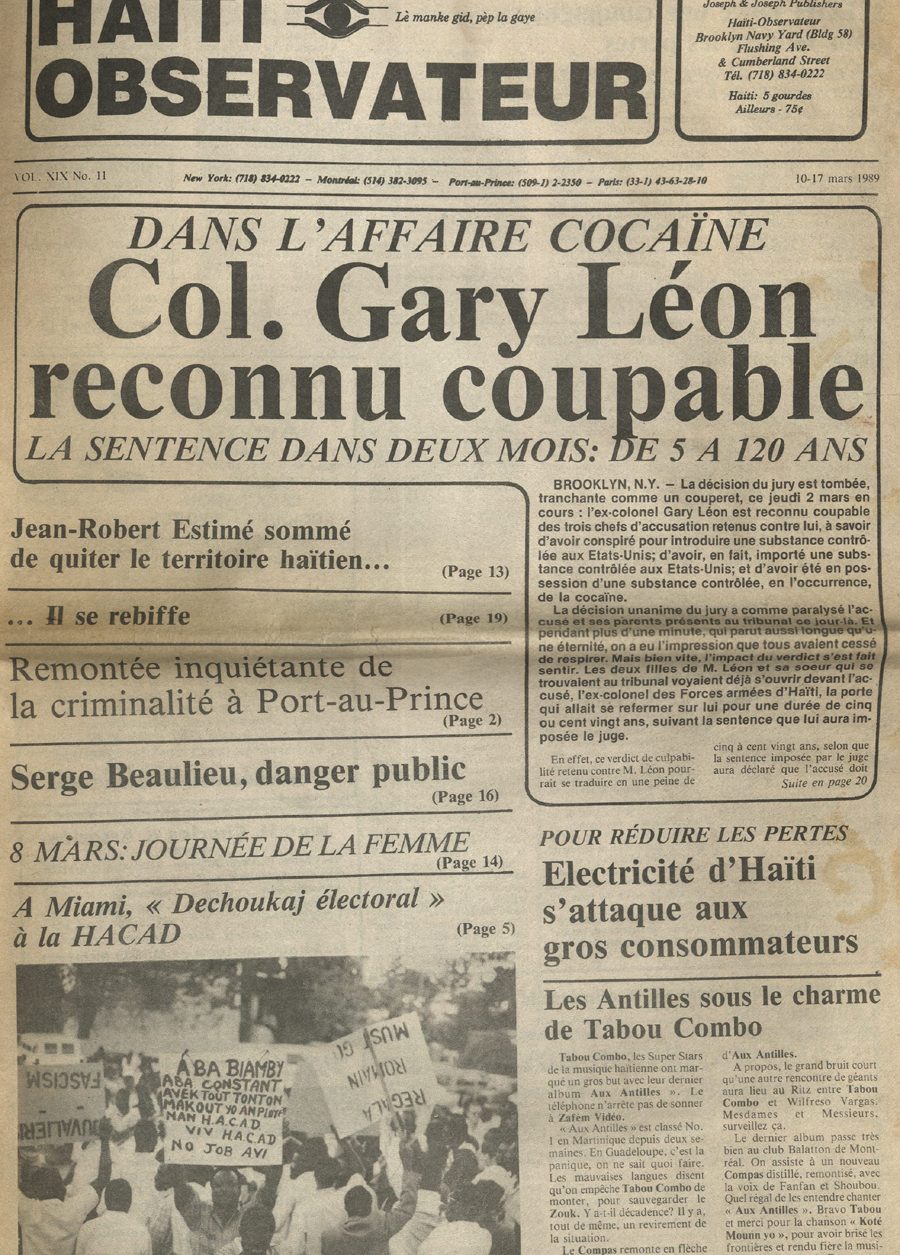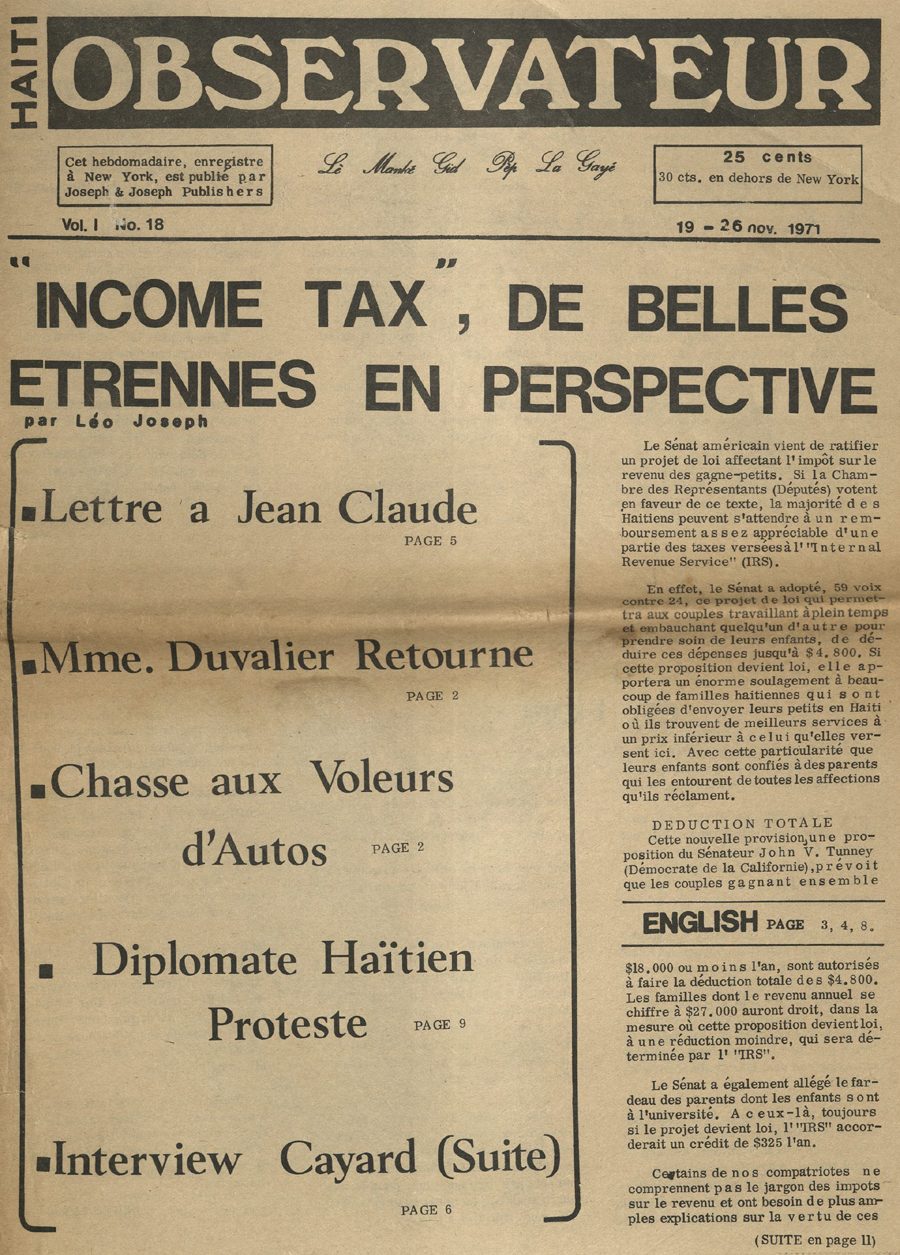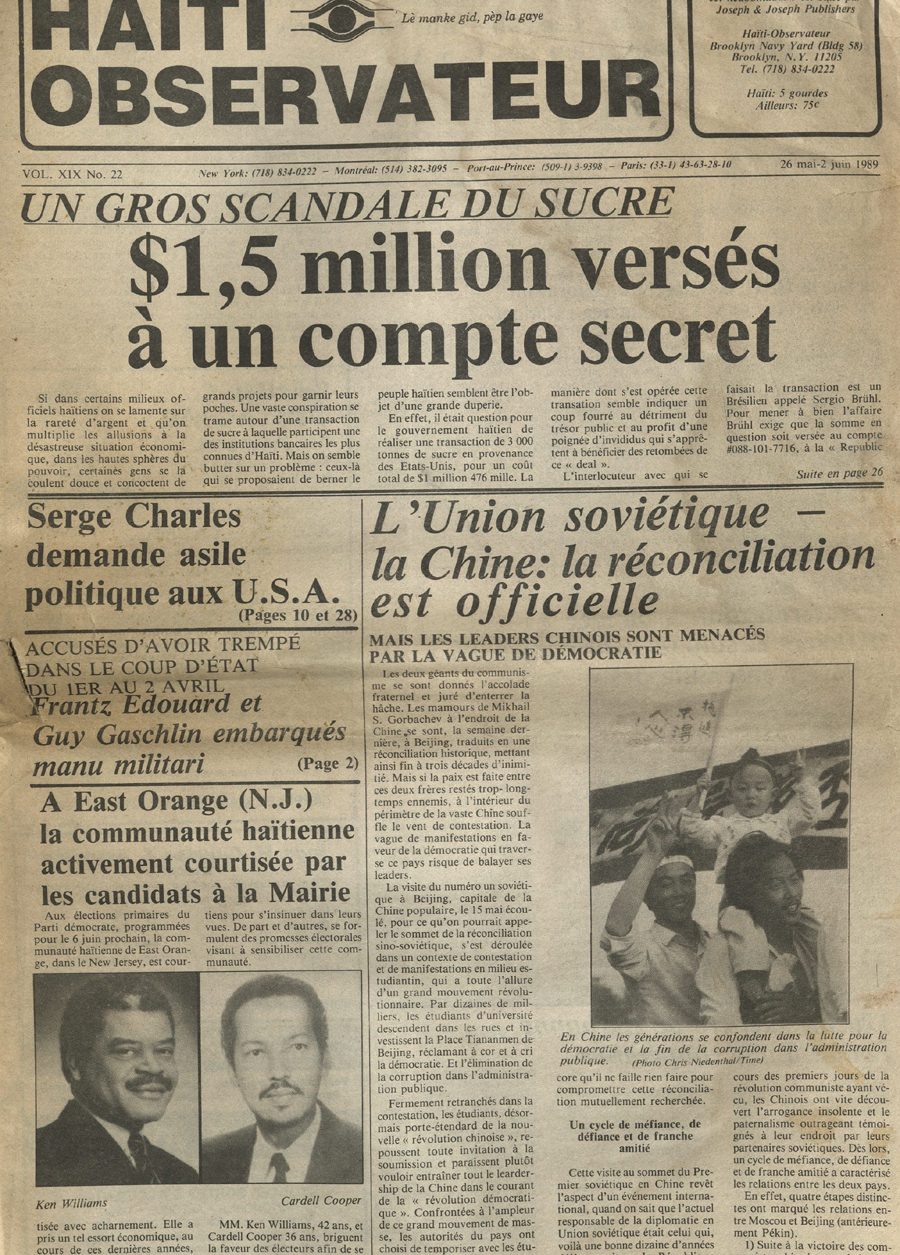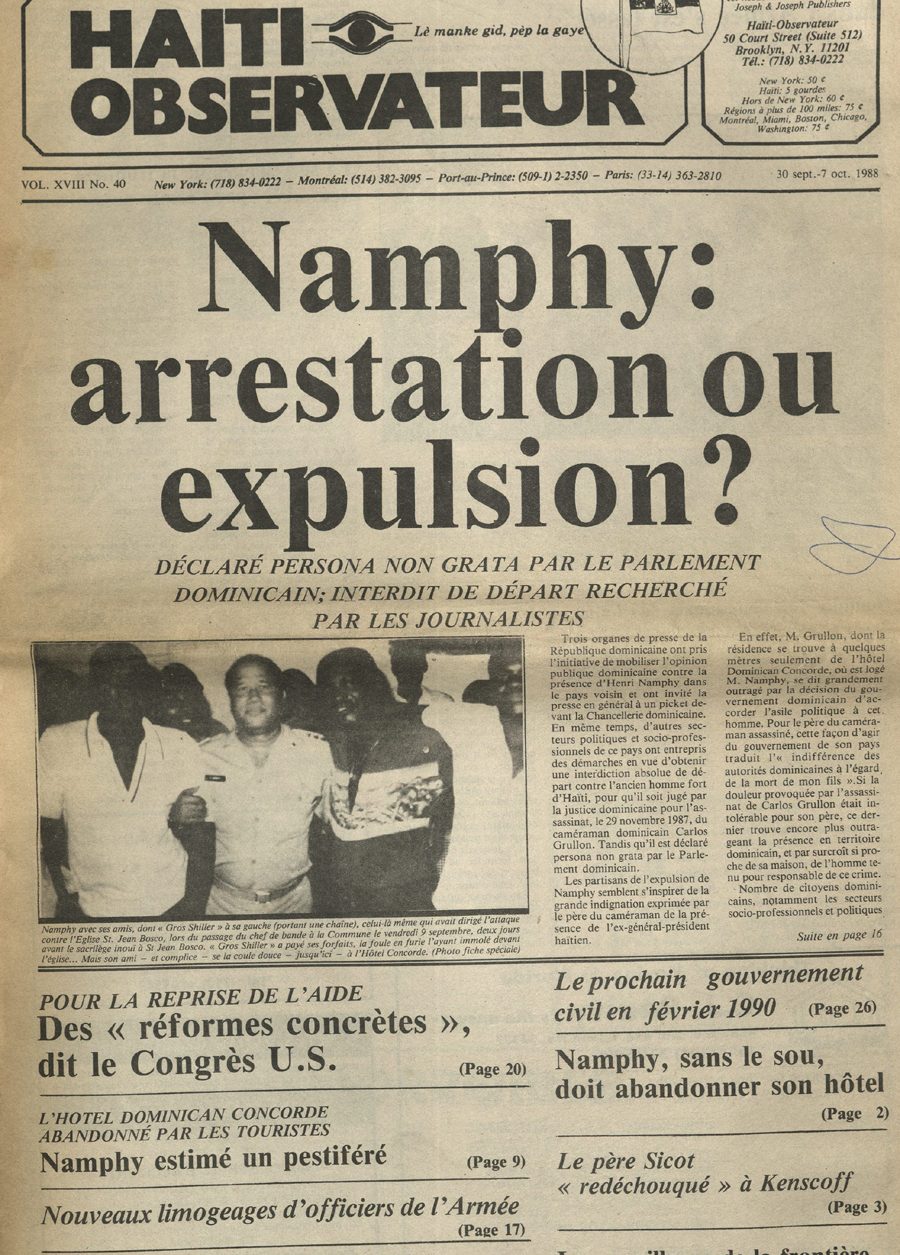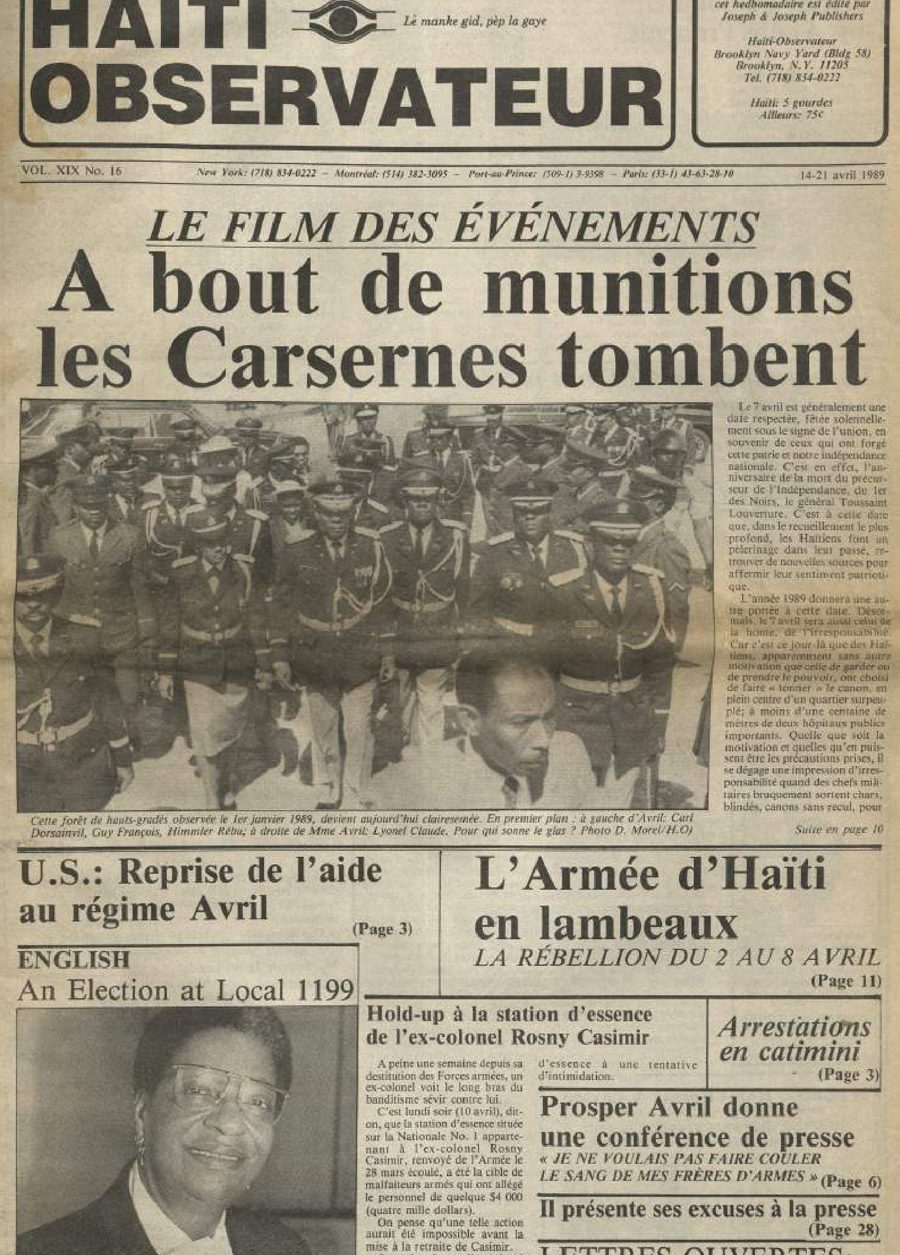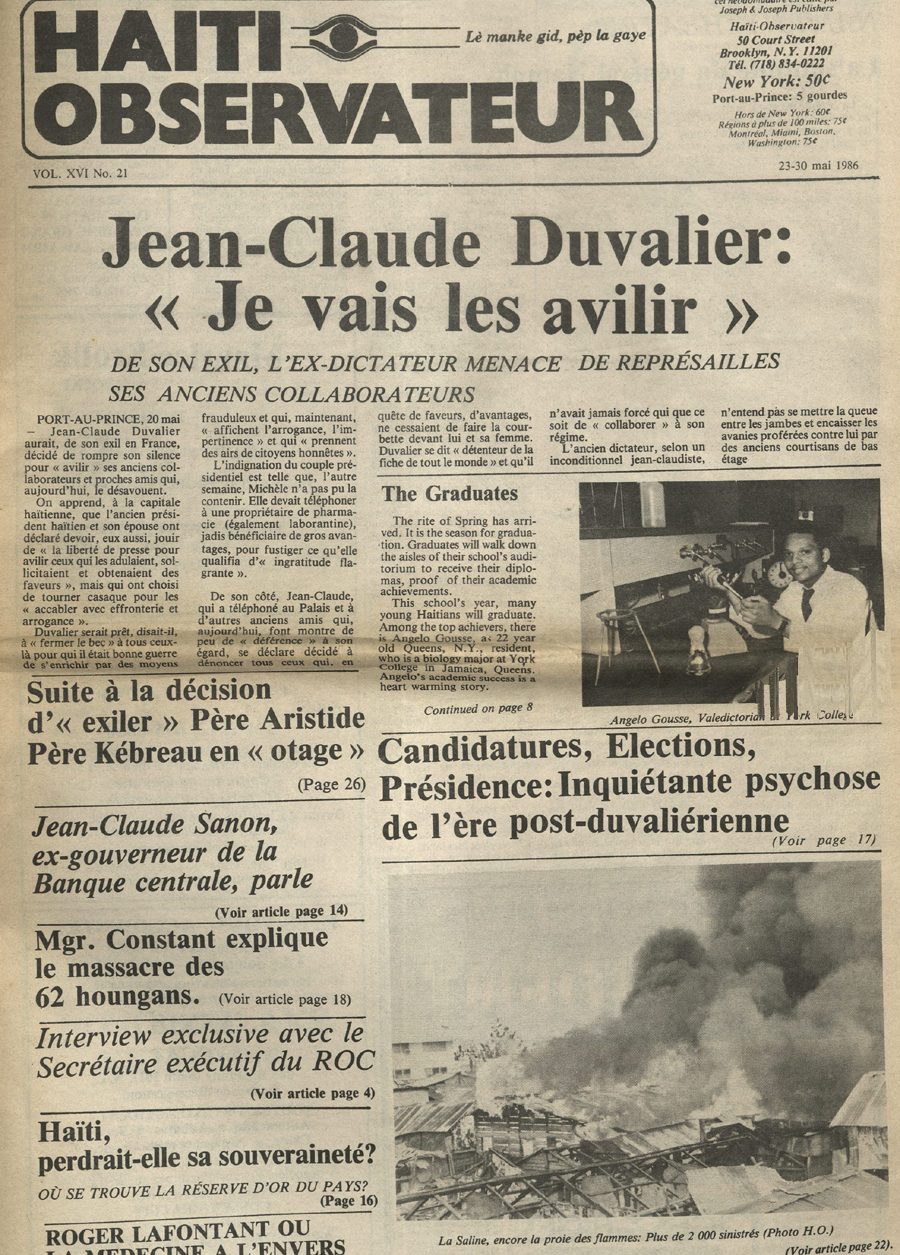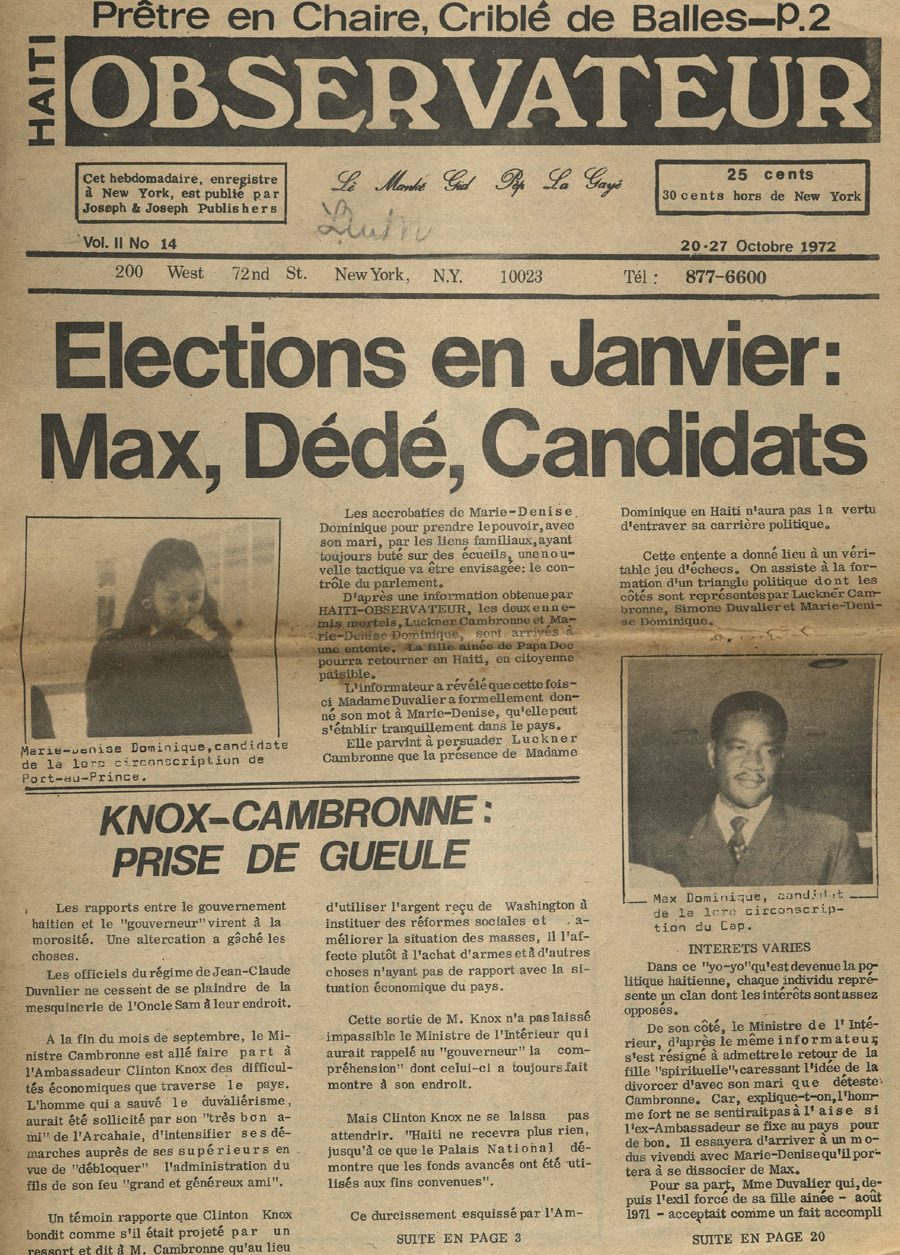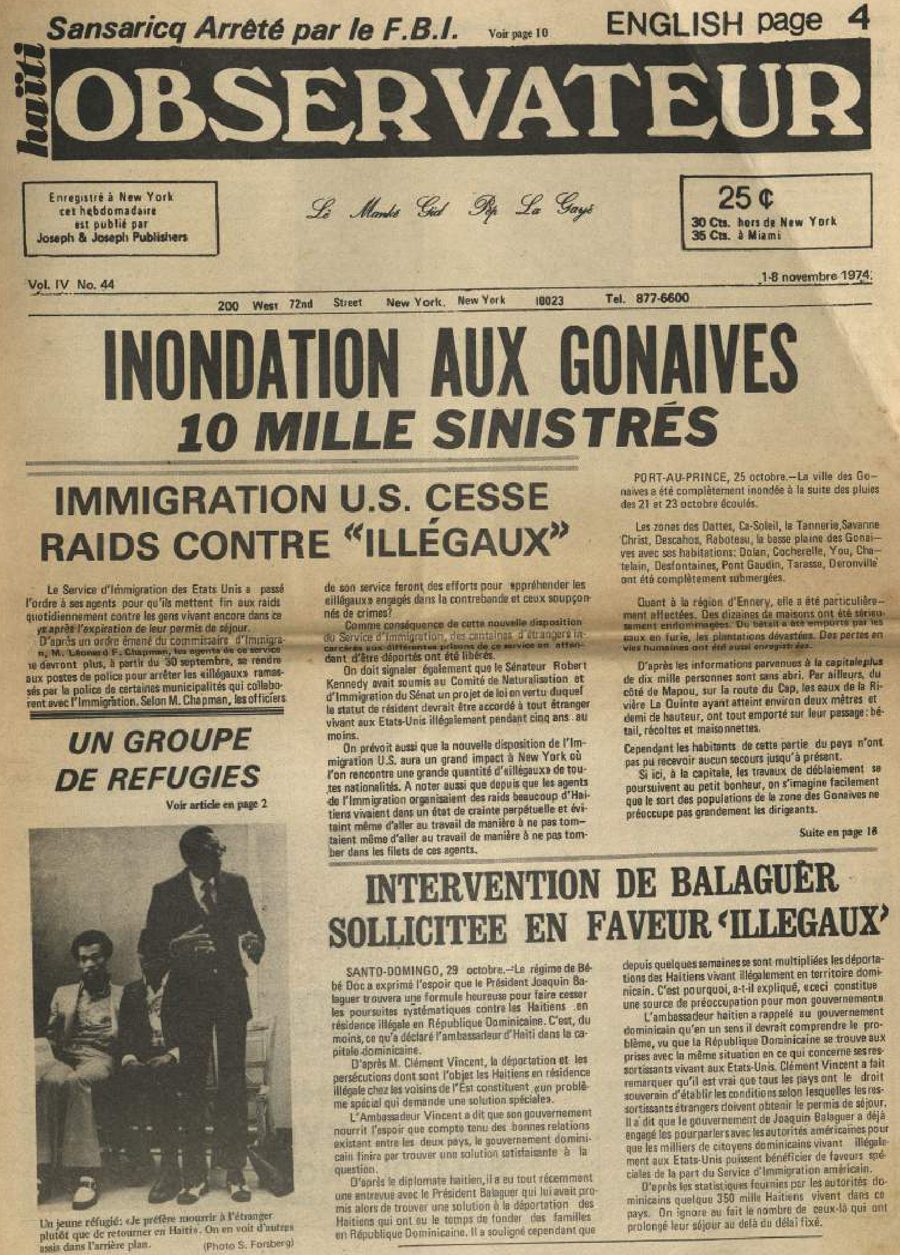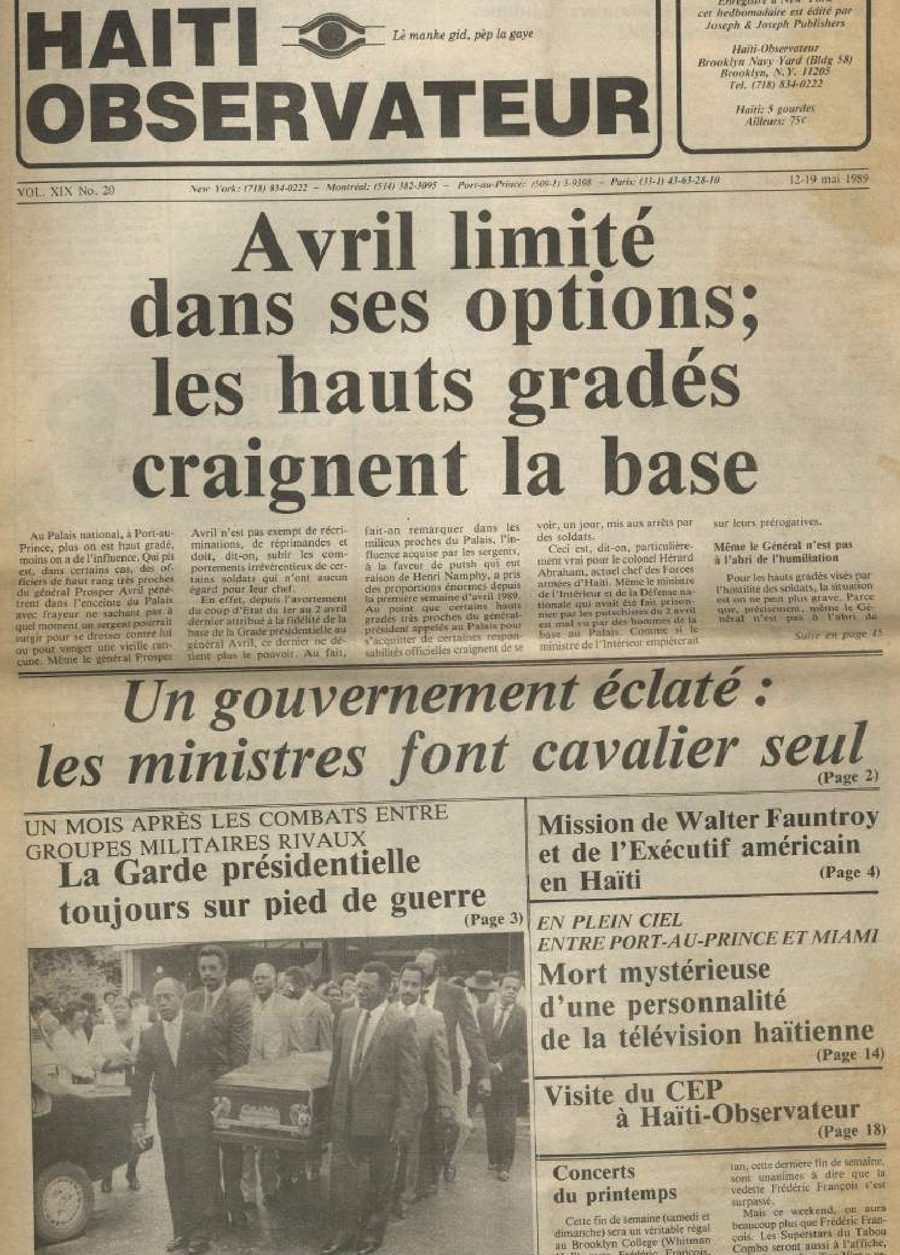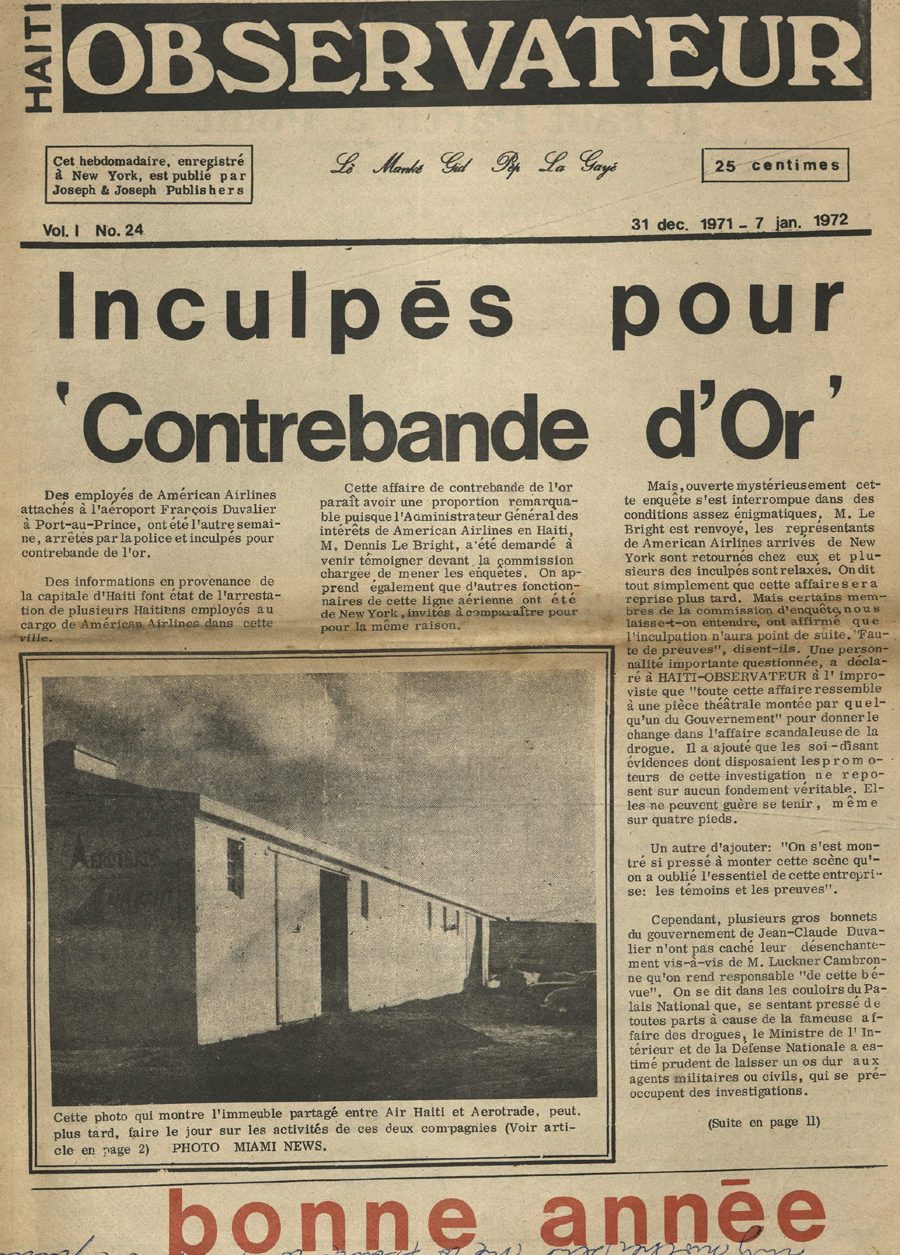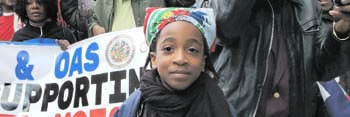
Demonstration in Brooklyn against a discredited President in Haiti and his foreign supporters
- HAPPENINGS !
It is not only in Haiti that they have been demonstrating against President Jovenel Moïse. Last Sunday, Haitians and Haitian- Americans took to the streets in Brooklyn. At 2 pm, the rendezvous was at the corner of Eastern Parkway and Nostrand Avenue. Timidly they began arriving, some straight from church, until they swelled up to about 200.
Whereupon they started the march, down on Nostrand Avenue, all the way to Newkirk Avenue, in front of St. Jerome Catholic Church, a sanctuary where many Haitians worship.
The smaller crowd at Eastern Parkway attracted passersby, intrigued by the flag waving and the slogans inscribed on large placards : “JOVENEL MOISE MUST GO,” “JOVENEL MOISE, DRUG DEALER,” “JOVENEL MOISE, MONEY LAUNDERER,” “JOVENEL MOISE, WHAT DID YOU DO WITH THE PETROCARIBE MONEY?” “OAS STOPPED SUPPORTING A CORRUPT PRESIDENT IN HAITI,” etc.
Vehicles going down the Parkway slowed down to read the placards, with some of their occupants rolling down windows and showing their support through signs, with hands out and fingers in V sign, for victory. Some non-Haitians passing by stopped to ask questions, which allowed for a conversation with a woman, originally from Trinidad & Tobago. She had heard about PetroCaribe, but wasn’t aware of all the other charges against the “Banana Man,” the farmer-turned-politician and now president.”
Before he was “elected” to the post, he was indicted for money laundering, an information in the files of UCREF, a government agency tasked with keeping tab on corruption in public administration. The woman was not aware of the indictment against the president; neither did she hear about the report of the State Auditors who recently denounced the president for having defrauded the PetroCaribe Fund even before he was elected president. He used an “embezzlement scheme,” said the Auditors in the May 31 report, by having his banana company charge the PetroFund twice for the same road-fixing job and using false engineering title to get the job in the first place. By the way, the work was never completed.
In any country adhering to the law, Jovenel Moĭse never could have been elected president because he would have been disqualified by the independent Electoral Council. The fact that an individual, under a cloud of indictment for money laundering, was able to be approved as candidate to the highest post in the country tells the enormity of corruption that gangrenes Haitian public administration.
The Sunday march in Brooklyn follows a sit-in October 21 at the Dag Hammarskjold Plaza, 47th Street and 1stAvenue in Manhattan, across from the United Nations. The demonstrators meant to draw attention to the multifaceted crisis in Haiti under the watch of the world body which has been involved in the country since 2004, going form MINUSTAH (United Nations Mission for Stability in Haiti), to MINUJUSTH (United Nations Mission for Justice Support in Haiti) and now to BINUH (United Nations Integrated Office in Haiti).
Whereas the first two UN missions were of a peace keeping nature, the latest one, taking effect last October 15, is of a political nature. After billions of dollars supposedly spent in Haiti, what does the United Nations have to show for such expenditures ? Corruption at the highest level, sham elections, violent gangs roaming all over the land, operating even in the capital of Port-au-Prince. Moreover, human rights violations are all too frequent, perpetrated by agents of the regime who have carried out massacres of men, women and children as if they were wild ducks. Even an “alarmed” UN Secretary General, Antonio Guterres, denounced the La Saline massacre in November of last year (in a Port-au-Prince slum) in a report last July to the Security Council. He had asked that there be an investigation and those responsible be punished accordingly. To be noted, neither the president nor the Prime Minister acknowledged the mass assassination or ever presented condolences to the families of the victims.
Understandably, Haitians in Haiti and those in the Diaspora in various Western countries, including the United States, have revolted and are asking for an accounting by those in power in Haiti as well as by their foreign supporters who claim that they are working for the establishment of democracy in Haiti. It is more disconcerting when some foreign diplomats in Haiti, covering up for the discredited president and those of his team, are reportedly implicated in corrupt practices!
*Edens Debas, one of the organizers of the Brooklyn march, said another march is scheduled Nov. either 17 or 18, a decision that was to be made last night (Tuesday, Nov. 5).
The exact date will be communicated soon and announced in HO next week. Probably it will be on Sunday, Nov. 17, to take advantage of the day prior to the 18th, which is the actual date of the 1803 Battle of Vertières, near Cap-Haĭtien, the second largest city in Haiti, which was then called Cap Français, where the French had their headquarters in the Western Hemisphere.
The battle, coming six months to the day after the May 18 Arcahaie Accord among the various warring bands against the French sealed the victory of the former slaves over their oppressors. The defeat of the French in Haiti set the stage for America to be the great country it is. Losing their political and economic foothold in the Americas, Napoléon Bona- parte renounced the grand plan of the French to have an empire in the New World. In addition, the new American nation, declaring independence in 1776 of the former 13 British colonies doubled its landmass. Known as the Louisiana Purchase, that deal must be among the biggest bargains for the equivalent of about $15 million for that expanse of land west of the Mississippi River all the way to the Rocky Mountains. Interestingly that area encompasses 13American states now.
*A wind of “dialogue” begins to blow again, but dialogue with whom and under what conditions ? “Réligions pour la Paix” (Religions for Peace), an ecumenical religious group that previously refused to assume the responsibility of conducting talks between Jovenel Moĭse and the opposition, issued a joint communiqué yesterday (Tuesday, Nov. 5) that is dated November 1st, calling for a “ceasefire” and “peaceful resolution” of the crisis.
The communiqué, signed by “Religions for Peace International” (RFP) and “Religions for Peace Haiti” (RFH), states that “the political crisis and the acts of violence it engenders result in an unprecedented human catastrophe.” Considering that “resistance has been fruitless for both parties,” the organizations propose “a peaceful resolution to the conflict via a multi-party dialogue.” Thus, calling for the “ceasefire,” they enjoin the countries considered as “friends of Haiti” to come to the support of the country with “urgent humanitarian aid and also play an active role for the dialogue to be effective.”
Meanwhile, HFP, the original international organization, said it supports the efforts of its Haitian counterpart in assuming the mediation of the dialogue. Created in Kyoto, Japan, in 1970, HFP is presided now by Azza Karam, a woman of Sunny Muslim faith. In addi- tion, the signer of the communiqué in Haiti is Pastor Clément Joseph, Secretary General of the Haitian “Réligions pour la Paix.”
It should be recalled that in September when President Moĭse had called on the group to oversee dialogue between him and the opposition, he was very adamant about his 5-year mandate that began February 7, 2017. On the other hand, the opposition was clear about his mandate being part of any dialogue. “Religions pour la Paix” declined the president’s request. Recently, in an interview with the Haitian daily Le Nouvelliste, Gary Bodeau, the president of Haiti’s Lower Chamber of Parliament, has said that “the president’s mandate should be put on the table” of any negotiation. Has President Moĭse privately softened his stand and letting one of his associates take the lead in announcing it? Only time will tell.
*CARICOM, the political association of Caribbean nations of which Haiti is member, has also raised the flag of dialogue in a long statement by the CARICOM chair. Timothy Harris, Prime Minister of St. Kitts and Nevis, the current CARICOM Chairman, issued the statement Tuesday (Nov. 5) via the Secretariat in Turkeyen, Greater Georgetown, Guyana, and saying. He says, “CARICOM is saddened and concerned by the deepening of the crisis in Haiti which has paralyzed the normal functioning of all sectors of the country and created a situation of extreme hardship for the people.”
He goes on to say, “The Community deplores the destruction of property and livelihoods, the deteriorating humanitarian situation and the increasing death toll resulting from the breakdown of law and order, which has intensified over the past seven weeks.”
Concerned about how CARICOM’s statement will be interpreted by those demonstrating against the government, the Chairman says, “While CARI- COM supports fully the enjoyment of the right to freedom of assembly, we urge that this be done in a lawful manner.” Calling on the better nature of all, he asserts, “Disruption of the daily activities of [the Haitian people] can only be resolved peacefully through constructive dialogue.” Therefore, CARICOM “appeals to all parties involved to commence a meaningful discourse, in good faith, to restore order and normalcy to Haiti.”
CARICOM, whose earlier offer to mediate in the situation, had been rejected by the Haitian government, “reiterates its offer of good offices to facilitate a political dialogue between the parties.”
With calls for “dialogue” coming from different quarters, one wonders whether those calling for the talks will remain at the “table of negotiations” if, at the outset, President Moĭse insists on serving out his five-year mandate! On this, hinges the success or failure of any expanded dialogue.
It would be unconscionable to ask all sectors of Haitian society which have publicly called on President Moĭse to resign — for cause—to accept to be ruled by a president indicted for money laundering, who embezzled State funds, ordered massacres of civilians, including children and who invited heavily-armed foreign mercenaries to protect him against his own people. That is a tall order! RAJ November 6, 2019
cet article est publié par l’hebdomadaire Haïti-Observateur édition du 5 novembre 2019 Vol. XXXXIX No.43, et se trouve en P. 1, 15, 16 à : http://haiti-observateur.info/wp-content/uploads/2019/11/H-O-6-november-2019.pdf



